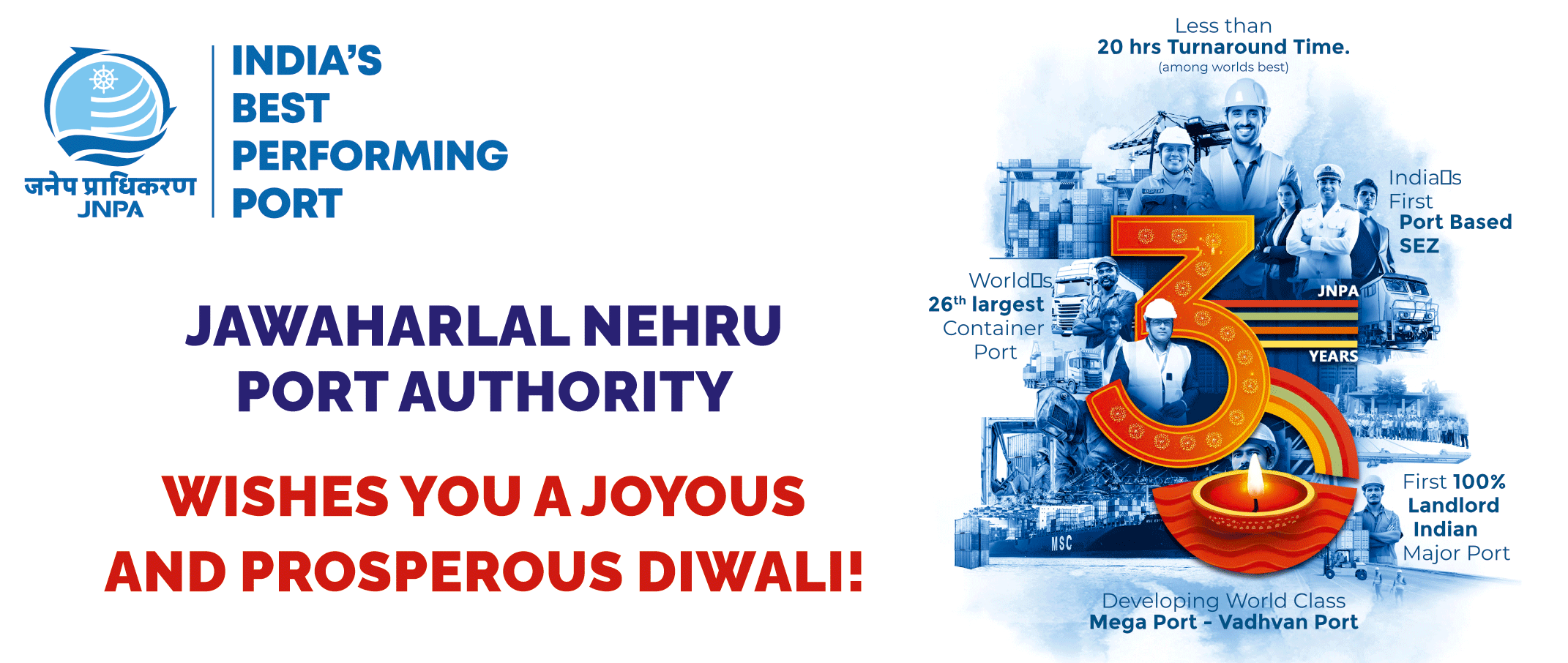TO RECIEVE EXCLUSIVE POSTS AND NEWS
Must Read
Operation Zeppelin -- Inside Adani's Counter to Hindenburg
By IndianMandarins- 19 hours ago
287New Delhi (22.04.2025): Hindenburg Research, the forensic
financial firm that challenged the Adani Group, took its name from the infamous
airship that burst into flames upon arriving in New Jersey in 1937. And the
counter to its damning report against the conglomerate was dubbed 'Operation
Zeppelin,' named after the German dirigible airships used for reconnaissance
and bombing during the First World War. In January 2023, Hindenburg published a scathing report
describing the Adani Group, one of India's largest conglomerates, led by one of
its richest men, as "the largest con in corporate history". The fallout was swift: stock prices plummeted,
wiping out over $150 billion in market value at the lowest point, and the
group's biggest public offering was abruptly scrapped. For a moment, it seemed
like Gautam Adani's empire was on the brink. But that impression didn't last long. The group staged a
swift comeback, deploying a mix of public relations, legal manoeuvres, and
strategic tactics to counter the fallout and restore investor confidence. The comeback was bolstered by a covert
operation, believed to have involved assistance from an Israeli intelligence
agency, according to people briefed on the issue. The Hindenburg report, which accused the Adani Group of
stock manipulation and accounting fraud, dropped just a week before Gautam
Adani was in Israel to finalise a $1.2-billion deal to acquire the Haifa
seaport. The privatisation of Haifa Port was Israel's largest and most
ambitious infrastructure and financial undertaking of the 2020s. Initially, 18
international bidders expressed interest, but only five were cleared to submit
final proposals. The winning bid -- after passing Israel's stringent security
vetting -- came from a joint venture between Gadot Masofim for Chemicals Ltd
and Adani Ports and Special Economic Zone Ltd, with the Indian firm holding the
majority stake. The bids, evaluations, and clearances had taken 18 long months
-- and Israeli Prime Minister Benjamin Netanyahu was present at the signing on
January 31, 2023. As the Hindenburg report dominated global headlines, a
private conversation unfolded in a modest room at the Haifa port. According to
sources, a top Israeli leader questioned Adani about the allegations, to which
the Indian billionaire firmly responded that they were "absolute
lies". Eshel Armoni -- the outgoing chairman of the port and a former
high-ranking Mossad official -- was believed to have been present during the
exchange. Some within the Israeli establishment viewed the Hindenburg
report as a deliberate attempt to undermine the Haifa port deal, which Tel Aviv
considered strategically vital for the India-Middle East-Europe Economic
Corridor (IMEC) -- a counterweight to growing Chinese influence in the region. Back home, Adani worked overtime to claw back the narrative
by trimming debt through prepayments and repayments of borrowing, cutting back
on the founder's pledged shares, bringing in both promoter and marquee investor
equity, and refocusing attention on the group's core businesses. Parallelly,
emerged Operation Zeppelin -- a clandestine investigation launched to uncover
the inner workings of Hindenburg Research and expose those backing it, sources
said. The New York offices of Hindenburg Research and its founder,
Nathan 'Nate' Anderson, a certified Chartered Financial Analyst, were watched,
they said. Former intelligence insiders soon started connecting the dots as
they stumbled upon a complex web of activist lawyers, journalists, hedge funds,
and political figures -- some allegedly connected to Chinese interests, others
to Washington power brokers. Sources said the spies even infiltrated a premise in the
suburban neighbourhood of Oakbrook Terrace, a small town in Illinois outside
Chicago, which led to uncovering of encrypted communications between privately
held alternative asset management firms and activists based in India, the US,
Europe, Canada, and Australia. Sources said Adani was briefed about the covert
operation during his private visit to Switzerland in January 2024. Adani did not react with noise -- he responded with
strategy. A team of attorneys and intelligence consultants to work alongside
the ones during surveillance in the US, was assembled. Influential figures in
the administration were briefed on the issue. In Ahmedabad, he set up a
high-tech control room with cyber experts and analysts. His legal teams worked
across international capitals. By October 2024, the Zeppelin Dossier on the collaborative
network against Adani had swelled to 353 pages. Later that year, leaked
documents purportedly showed links between US agencies and media platforms that
were pushing anti-Adani narratives, they said. In late November that year, the US Department of Justice and
the Securities and Exchange Commission charged Gautam Adani and key executives
with being part of an alleged bribery scheme to secure renewable power supply
contracts in India. The Adani group denied all allegations. Simultaneously, the Adani Group prepared to launch legal
proceedings in the Southern District of New York, against Hindenburg Research
and Nathan Anderson. A seven-page draft legal brief, prepared by a white shoe
law firm, was sent to Anderson's office. Sources said a meeting between the
Adani's legal intermediaries and Hindenburg officials was proposed but it
wasn't clear if the meeting at the Textile Building at 295 Fifth Avenue in
Manhattan took place. On January 15, 2025, a week shy of the second anniversary of
its report on Adani group, Hindenburg Research formally announced shutting down
of operations. The entire gamut of Operation Zeppelin -- modern-day
counteroffensive that combined business, diplomacy, and cyber strategy -- may
never be known but it certainly will be considered the boldest comeback
strategy in the corporate world. 
- Adani-Hindenburg
- Hindenberg
- Hindenburg Research report
- Adani Ports
- Adani Ports
- Adani Group
- Adani Power
- Adani Enterprises
- Adani Total Gas
- Adani Green Energy
- Adani Transmission
- Adani Green Energy Limited
- Gautam Adani
- Adani Enterprises Limited
- Adani Power Limited
- Adani CMA Mundra Terminal Pvt Ltd
- Adani Total Gas Ltd
- Operation Zeppelin
Readers' Choice
A Jayathilak appointed as the next CS of Kerala 2 hours ago
Ex-bureaucrats sign letter resenting destruction of forest in Hyderabad 21 Apr 2025
Ex Karnataka DGP found dead at Bengaluru residence; murder suspected 21 Apr 2025
IAS officer Sabharwal gets police notice for sharing AI video 17 Apr 2025
Ex-bureaucrat, retd SC judge in Stalin's panel to safeguard rights of states 16 Apr 2025
Operation Zeppelin -- Inside Adani's Counter to Hindenburg
By IndianMandarins - 2025-04-22 22:27:00

New Delhi (22.04.2025): Hindenburg Research, the forensic financial firm that challenged the Adani Group, took its name from the infamous airship that burst into flames upon arriving in New Jersey in 1937. And the counter to its damning report against the conglomerate was dubbed 'Operation Zeppelin,' named after the German dirigible airships used for reconnaissance and bombing during the First World War.
In January 2023, Hindenburg published a scathing report describing the Adani Group, one of India's largest conglomerates, led by one of its richest men, as "the largest con in corporate history". The fallout was swift: stock prices plummeted, wiping out over $150 billion in market value at the lowest point, and the group's biggest public offering was abruptly scrapped. For a moment, it seemed like Gautam Adani's empire was on the brink.
But that impression didn't last long. The group staged a swift comeback, deploying a mix of public relations, legal manoeuvres, and strategic tactics to counter the fallout and restore investor confidence. The comeback was bolstered by a covert operation, believed to have involved assistance from an Israeli intelligence agency, according to people briefed on the issue.
The Hindenburg report, which accused the Adani Group of stock manipulation and accounting fraud, dropped just a week before Gautam Adani was in Israel to finalise a $1.2-billion deal to acquire the Haifa seaport. The privatisation of Haifa Port was Israel's largest and most ambitious infrastructure and financial undertaking of the 2020s. Initially, 18 international bidders expressed interest, but only five were cleared to submit final proposals.
The winning bid -- after passing Israel's stringent security vetting -- came from a joint venture between Gadot Masofim for Chemicals Ltd and Adani Ports and Special Economic Zone Ltd, with the Indian firm holding the majority stake. The bids, evaluations, and clearances had taken 18 long months -- and Israeli Prime Minister Benjamin Netanyahu was present at the signing on January 31, 2023.
As the Hindenburg report dominated global headlines, a private conversation unfolded in a modest room at the Haifa port. According to sources, a top Israeli leader questioned Adani about the allegations, to which the Indian billionaire firmly responded that they were "absolute lies". Eshel Armoni -- the outgoing chairman of the port and a former high-ranking Mossad official -- was believed to have been present during the exchange.
Some within the Israeli establishment viewed the Hindenburg report as a deliberate attempt to undermine the Haifa port deal, which Tel Aviv considered strategically vital for the India-Middle East-Europe Economic Corridor (IMEC) -- a counterweight to growing Chinese influence in the region.
Back home, Adani worked overtime to claw back the narrative by trimming debt through prepayments and repayments of borrowing, cutting back on the founder's pledged shares, bringing in both promoter and marquee investor equity, and refocusing attention on the group's core businesses. Parallelly, emerged Operation Zeppelin -- a clandestine investigation launched to uncover the inner workings of Hindenburg Research and expose those backing it, sources said.
The New York offices of Hindenburg Research and its founder, Nathan 'Nate' Anderson, a certified Chartered Financial Analyst, were watched, they said. Former intelligence insiders soon started connecting the dots as they stumbled upon a complex web of activist lawyers, journalists, hedge funds, and political figures -- some allegedly connected to Chinese interests, others to Washington power brokers.
Sources said the spies even infiltrated a premise in the suburban neighbourhood of Oakbrook Terrace, a small town in Illinois outside Chicago, which led to uncovering of encrypted communications between privately held alternative asset management firms and activists based in India, the US, Europe, Canada, and Australia. Sources said Adani was briefed about the covert operation during his private visit to Switzerland in January 2024.
Adani did not react with noise -- he responded with strategy. A team of attorneys and intelligence consultants to work alongside the ones during surveillance in the US, was assembled. Influential figures in the administration were briefed on the issue. In Ahmedabad, he set up a high-tech control room with cyber experts and analysts. His legal teams worked across international capitals.
By October 2024, the Zeppelin Dossier on the collaborative network against Adani had swelled to 353 pages. Later that year, leaked documents purportedly showed links between US agencies and media platforms that were pushing anti-Adani narratives, they said.
In late November that year, the US Department of Justice and the Securities and Exchange Commission charged Gautam Adani and key executives with being part of an alleged bribery scheme to secure renewable power supply contracts in India. The Adani group denied all allegations.
Simultaneously, the Adani Group prepared to launch legal proceedings in the Southern District of New York, against Hindenburg Research and Nathan Anderson. A seven-page draft legal brief, prepared by a white shoe law firm, was sent to Anderson's office. Sources said a meeting between the Adani's legal intermediaries and Hindenburg officials was proposed but it wasn't clear if the meeting at the Textile Building at 295 Fifth Avenue in Manhattan took place.
On January 15, 2025, a week shy of the second anniversary of its report on Adani group, Hindenburg Research formally announced shutting down of operations. The entire gamut of Operation Zeppelin -- modern-day counteroffensive that combined business, diplomacy, and cyber strategy -- may never be known but it certainly will be considered the boldest comeback strategy in the corporate world.

























